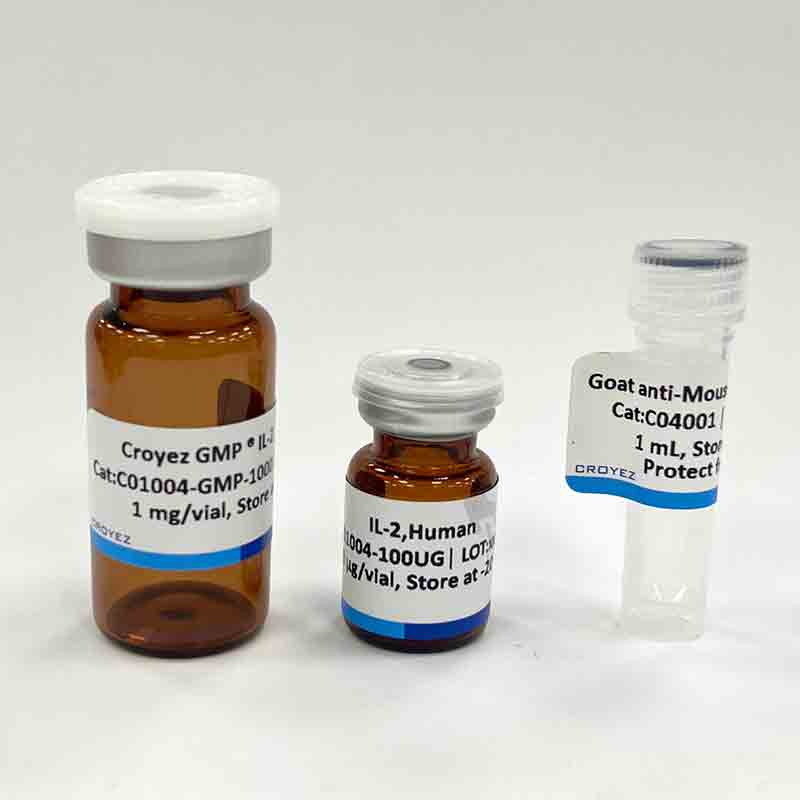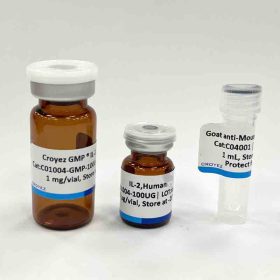Product Description
Interferon-beta is, a cytokine, released by fibroblasts and pathogen-exposed dendritic cells, macrophages, and endothelial cells. IFN beta 1a conducts through the heterodimeric IFN-alpha/beta Receptor. IFN-beta-deficient mice are easier to suffer from experimental autoimmune encephalomyelitis (EAE), a disease model of human multiple sclerosis (MS).In addition, IFN-beta has been proved to suppress the Th17 cell response in both MS and EAE and is usually used to treat MS disease.
Sequence:
MSYNLLGFLQRSSNFQCQKLLWQLNGRLEYCLKDRMNFDIPEEIKQLQQFQKEDAALTIYEMLQNIFAIFRQDSSSTGWNETIVENLLANVY
HQINHLKTVLEEKLEKEDFTRGKLMSSLHLKRYYGRILHYLKAKEYSHCAWTIVRVEILRNFYFINRLTGYLRN with polyhistidine tag at
the C-terminus
Source:
Escherichia coli
Endotoxin Test:
<0.1 EU per 1 μg of the protein by the LAL method.
Activity:
Measure by its ability to induce apoptosis in HeLa cells. The ED50 for this effect is <15 ng/mL.
Measure by its ability to induce cytotoxicity in TF-1 cells. The ED50 for this effect is <0.1 ng/mL. The specific activity of recombinant human IFN beta 1a is approximately >1 x107 IU/mg.
Purity:
>98% as determined by SDS-PAGE. Ni-NTA chromatography
Formulation:
The protein was lyophilized from a solution containing 1X PBS, pH 8.0.
Reconstitution:
It is recommended to reconstitute the lyophilized protein in sterile H2O to a concentration not less than 100 μg/mL and incubate the stock solution for at least 20 min to ensure sufficient re-dissolved.
Storage:
Lyophilized protein should be stored at -20°C. Upon reconstitution, protein aliquots should be stored at -20°C or -80°C.
Note:
Please use within one month after protein reconstitution.





